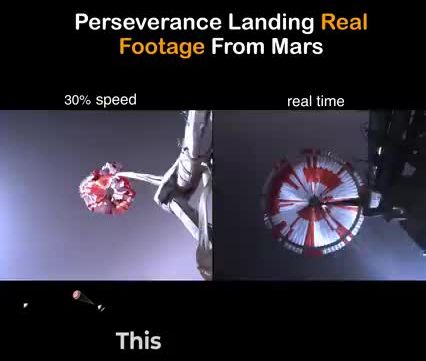Launch yourself from a great enough height and it won’t take long to see which would win in a battle between gravity and the forces that bind solid ground.




What do you think about this environmentally friendly bottle?
Coca-cola has just unveiled their new sustainable paper bottles designed in partnership with Danish company Paboco.



With its soaring temperatures and toxic atmosphere, Venus is a punishing place. The longest amount of time a spacecraft has survived on the planet’s surface is just over 50 minutes, when the Soviet-designed Vega 2 mission landed there in 1985.
That’s why NASA dubbed the latest challenge in its Automaton Rover for Extreme Environments (AREE) project “Exploring Hell”: Could designers build a mechanically powered robot that can withstand the harsh environment and explore the unknown world?
Hallucinogens, neuro-immunology and the microbiome — convergent approaches in mental healthcare — mike wang, johns hopkins university.
Mike Wang, is a neuro-psychiatric researcher and adjunct teaching faculty in neuroscience at the Johns Hopkins Krieger School of Arts and Sciences.
Mike is one of the youngest principal investigators at the Johns Hopkins School of Medicine and currently leads a clinical trial examining how hallucinogenic levels of over-the-counter dextromethorphan might serve as the world’s first rapid acting oral antidepressant. (Those interested in the clinical trial for dextromethorphan can.
Mike’s work has been featured in academic journals like the American Journal of Psychiatry, as well as popular outlets like Psychology Today and VICE.
Mike received his graduate training in immunology at the Johns Hopkins Bloomberg School of Public Health studying rare viral encephalitides and neuro-immune determinants of depressive disorders.
The Aidan Meller Galley (www.aidanmeller.com) is Oxford’s longest established specialist gallery dealing in Modern, Contemporary and Old Master works.
Today we are joined by Aidan Meller, the Gallery Director, who with 20 years’ experience in the art business, works closely with private collectors, is often consulted by those who wish to begin, or further develop their collections, and is the creator of the Aidan Meller Art Prize, a valuable resource for the development of the arts.
Aidan regularly has original works in the gallery by the likes of Picasso, Matisse, Chagall, as well as older works such as John Constable, Turner and Millais, was involved in a discovery of a collection of Pre-Raphaelite cartoons for stained glass, is working with other experts in the field of scientific procedures for the authentication of artwork, and has been interviewed on a variety of current affair topics including the exhumation of Salvador Dali.
On today’s show we are going to be focusing on a rather new artist in the Meller portfolio, and that would be Ai-Da (www.ai-darobot.com), the world’s first ultra-realistic, humanoid, artificial intelligence (AI) robot artist, who makes drawings, painting, and sculptures.
Ai-Da is named after the mathematician Ada Lovelace, combines the latest in computing, robotics, and AI innovations, including those developed at Leeds University, and University of Oxford, and represents a fascinating milestone in AI innovation, human collaboration and creativity.
:3333
NASA mission control in Southern California received the first status report from Ingenuity late on Friday via the space-based Mars Reconnaissance Orbiter.